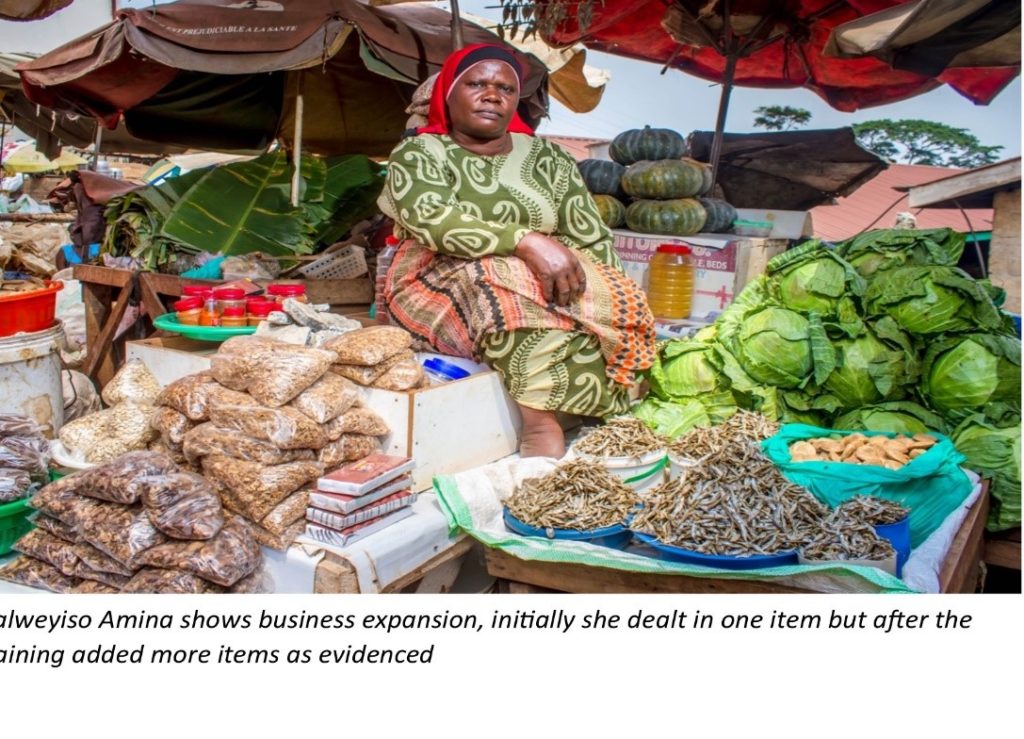
To mark 16 Days of Activism this year, AWDF and her grantee partners are lending a voice to support the global campaign on ratification and implementation of the new ILO Convention 190 and recommendation 206 to end gender based violence in the world of work.
Under the thematic area of Body and Health Rights, AWDF has supported a number of women’s rights organisations in Africa to mobilise for the protection of women’s rights and an end to violence in the informal economy and in domestic work.
African women are the backbone of African economies, performing labour to sustain themselves, their families, communities and countries. However, this labour often takes place in precarious conditions, with low pay, lack of recognition or protection, and frequent violations of women workers’ human rights.
The Institute for Social Transformation, Uganda with the support of AWDF is working to strengthen the voices, visibility, and collective organising power of women in four selected markets in Uganda.
Informal markets are of high interest to politicians and government officials, who derive easy money and support and therefore influence decisions such as who occupies leadership positions in such spaces. Women cannot easily occupy the most influential positions (e.g., Chairpersonship) because they are perceived to be incapable or temperamental.
The intervention by IST resulted from a research conducted in 2016 which revealed that there is no clear regulatory framework for informal markets in Uganda. This has exposed market women to violence and exploitation and yet they are the majority market occupants (80%). The study also revealed that 59% of market women interviewed had experienced some form of violence with the most prevalent form being physical violence at 47%.
IST empowered over 300 market women within the four selected markets with capacity support and mentorship which provided market women with relevant knowledge in managing their businesses and also to advocate for favourable local government market policies and working environment. Hear their testimonies:
“After the training I received from IST, I was able to educate 9 women and together we formed a savings group that contributes 5,000 Shs per day per member for purposes of accumulating capital for each other through cash rounds.” Naura Miriam- Nakawa Market
“Before the training I sold tomatoes and was satisfied with the sales but after the training, I realised the need to expand the business so I used some of the profits from the tomato business to enrol for training in liquid soap making. Today I am a happy person, I am not scared even if the price of tomatoes goes down because I know I have a backup income thanks to IST,” said a market entrepreneur from Kalerwe freedom market.
“The training has enabled me to gain confidence to speak to customers and to confront market authorities if I feel I am not being treated fairly. Previously, I would just sell the items quietly but today while the customer buys, I keep telling them about why they should buy from me, and I even ask them for their contact so I can follow up to check if they liked the product,” Hellen, a market entrepreneur from Busia market.
By: Rose Buabeng, Programme Officer for Anglophone Africa, AWDF
